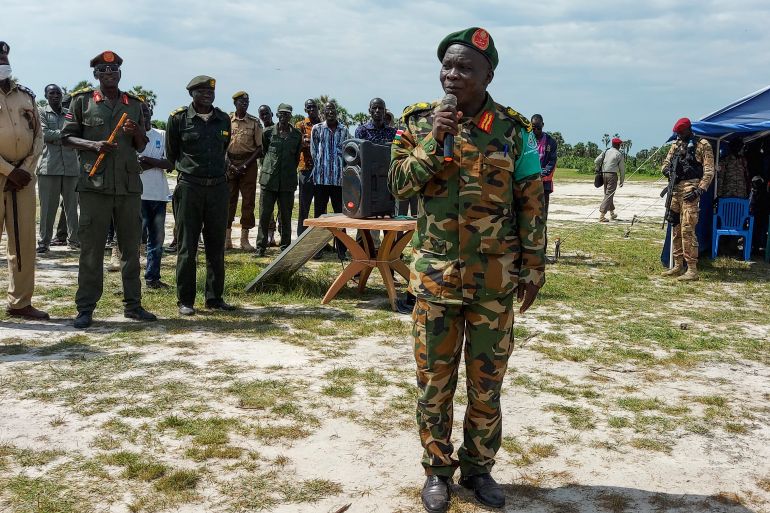South Sudan’s current violence ‘lot worse’ than during civil war
UN report says hundreds killed, hundreds of thousands displaced during fighting; women and girls abducted and raped.

Violence raging in vast swaths of South Sudan a year after a peace deal was signed to end the five-year civil war is “a lot worse” than during the war itself, according to a United Nations report released on Friday.
Attacks on civilians by armed groups intensified last year and victims are targeted along ethnic lines, often with the support of government and opposition forces, the report by the UN’s Commission on Human Rights in South Sudan said.
Keep reading
list of 3 itemsHas the world ignored South Sudan?
‘Our children die in our hands’: Floods ravage South Sudan
The scale of violence exceeds that of the 2013-2019 war, commission chairwoman Yasmin Sooka said.
“The violence is continuing because people know they can get away with it,” Sooka told reporters in Geneva, adding that there was “no doubt that the coordination is really coming from the top”.
It was a sharp warning that civilians are as much at risk as ever for atrocities, including gang rapes, forced displacement and abductions.
The 2013-2018 civil war is estimated to have killed nearly 400,000 people and millions are still struggling to recover.
The report added that hundreds were killed and hundreds of thousands displaced during fighting in Central Equatoria, Warrap, Jonglei, and Greater Pibor.
Women and girls have been “abducted, raped, gang-raped and sexually enslaved, and in some instances are forcibly married”.
Commission member Andrew Clapham said the scale of the violence and the fact that local groups were using newer weapons suggested either the involvement of state forces or external actors.
South Sudan’s acting military spokesman Santo Domic Chol said it was not the first time the commission had issued such a report.
“We are not against your report, but you need to share it with us so that if there are areas of mistakes that some of our institutions has undertaken, we can change,” Chol said, adding that the government and the army would not accept negative campaigns against institutions waged through the media.
After decades of civil war, South Sudan won independence from Sudan in 2011.
Violence erupted in late 2013 after President Salva Kiir, from the Dinka ethnic group, sacked Vice President Riek Machar, a Nuer.